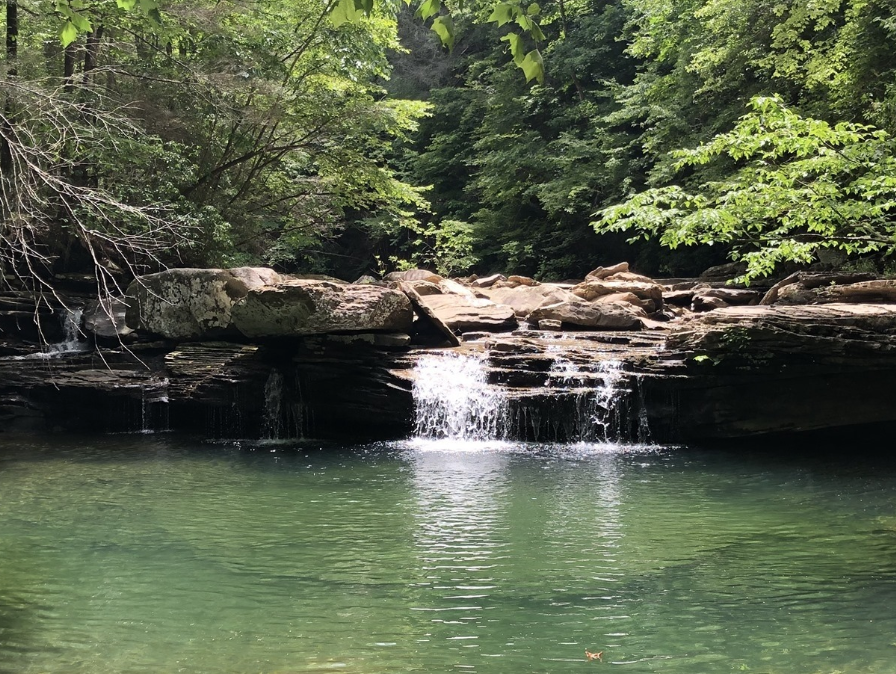-
Posts
6,199 -
Joined
-
Last visited
Content Type
Profiles
Blogs
Forums
American Weather
Media Demo
Store
Gallery
Everything posted by Holston_River_Rambler
-

Winter 2024/2025 February Thread
Holston_River_Rambler replied to AMZ8990's topic in Tennessee Valley
GFS looks to have a little more precip with initial push, but the TPV suppresses the rest into oblivion, besides whatever lapse rate upslope we'd get as it swings through. -

Winter 2024/2025 February Thread
Holston_River_Rambler replied to AMZ8990's topic in Tennessee Valley
Absolute beast behind it: That is the storm that the 6z AIFS develops into a big nor'easter around Feb 24. -

Winter 2024/2025 February Thread
Holston_River_Rambler replied to AMZ8990's topic in Tennessee Valley
Current location of the system and STJ: Juice is there, but will it take it to Cuba? -

Winter 2024/2025 February Thread
Holston_River_Rambler replied to AMZ8990's topic in Tennessee Valley
5 big players, in my mind, using the 6z Euro as an example: 1 = main TRPV lobe, trapped under the retrograding block. Questions with this one: How far south is it? That guides the amp potential of 3, (initial shortwave energy). This is what helps kick off the initial wave of light snow that seems to pitter on on some model runs around Wednesday AM. 2 = Tail end of the TPV lobe, this has the most boom or bust potential IMO. Questions with this. How far south and east does it swing? Far enough and we get a big juicy storm. If it stays far back we get more amp in 3 or 5 (main shortwave IMO, that really brings the snow with the CMC or Euro runs). Or it could run interference and be just close enough, but also just far away enough to suppress both 3 and 5. 3 = initial, strung out, shortwave energy. Questions with this one. How strong and defined is it? Stronger and more well defined = more precip. with initial wave. 4 = wild card STJ mess. Just noticed this connection when I looked at the above map to make this post. How much moisture and or mid level dry air does this inject to beef up or weaken the synoptic set up? Remember the drying out that happened back in Jan? Does look as likely this time, but who knows. 5= main shortwave. In my mind this is the most important shortwave for us. Its amplification is what draws moisture to the north. Questions with this one were mostly noted above, but if this one and 2 were to somehow find a way to partially phase, you get a really nice storm. This scenario is what really brough the moisture back to us on the CMC run last night IMO: For MBY (and much of East TN IMO) that is the preferred scenario, but I think all are still on the table at this time. -

Winter 2024/2025 February Thread
Holston_River_Rambler replied to AMZ8990's topic in Tennessee Valley
I think a lot of it depends, too, on the TPV lobe and how it interacts with all the shortwave vorts swirling beneath it. -

Winter 2024/2025 February Thread
Holston_River_Rambler replied to AMZ8990's topic in Tennessee Valley
There is a severe thread with some disco of this weekend. -

Winter 2024/2025 February Thread
Holston_River_Rambler replied to AMZ8990's topic in Tennessee Valley
So I screwed up and was so excited when the ECMWF site popped back up and I saw 12, I just assumed 12z. It was 12 Feb 0z. -

February Medium/Long Range Thread
Holston_River_Rambler replied to stormtracker's topic in Mid Atlantic
I'll own up to the screw up. When the ECMWF website popped back up and I saw 12 and just thought it was 12z. It was 12 Feb 0z. My bad. -

Winter 2024/2025 February Thread
Holston_River_Rambler replied to AMZ8990's topic in Tennessee Valley
Looks like the site has flopped again, so that's the best I have for now. -

February Medium/Long Range Thread
Holston_River_Rambler replied to stormtracker's topic in Mid Atlantic
Euro finally ambled out on the ECMWF site. Thought I'd share with you all too. It died again before I get get any other layers. Days are Feb 19 - 20 MSLP and precip planels, 6hrs. -

Winter 2024/2025 February Thread
Holston_River_Rambler replied to AMZ8990's topic in Tennessee Valley
Suppression depression on the Euro: -

Winter 2024/2025 February Thread
Holston_River_Rambler replied to AMZ8990's topic in Tennessee Valley
Somebody in the MidAtlantic forum said the Euro's depiction of March '93 redux is currently under review by officials and that is causing the delay. -

Winter 2024/2025 February Thread
Holston_River_Rambler replied to AMZ8990's topic in Tennessee Valley
Euro website back up, but the "charts" section still offline. -

Winter 2024/2025 February Thread
Holston_River_Rambler replied to AMZ8990's topic in Tennessee Valley
As far as I can tell the whole Euro website is down. https://charts.ecmwf.int/ -

Winter 2024/2025 February Thread
Holston_River_Rambler replied to AMZ8990's topic in Tennessee Valley
I think its just the Euro according to COD. Got the info off of Southernwx -

Winter 2024/2025 February Thread
Holston_River_Rambler replied to AMZ8990's topic in Tennessee Valley
yeah it has some data problem. -

Winter 2024/2025 February Thread
Holston_River_Rambler replied to AMZ8990's topic in Tennessee Valley
All down hill from here: -

Winter 2024/2025 February Thread
Holston_River_Rambler replied to AMZ8990's topic in Tennessee Valley
GEFS member 25 has given us a ceiling, lol. -

Winter 2024/2025 February Thread
Holston_River_Rambler replied to AMZ8990's topic in Tennessee Valley
UKIE: -

Winter 2024/2025 February Thread
Holston_River_Rambler replied to AMZ8990's topic in Tennessee Valley
Yeah, I think the ICON was going to bring the second wave for more snow. It is the ICON alas. -
Webb going for the 2011 and 1974 analogs on X.
-
Looks like the rain/snow line may be trying to slip south towards Kingsport with precip rates? @Carvers Gap
-

Winter 2024/2025 February Thread
Holston_River_Rambler replied to AMZ8990's topic in Tennessee Valley
I found the link I posted for the above in links. It was the last thing I posted in links, lol. Doesn't work for me anymore sadly. -

Winter 2024/2025 February Thread
Holston_River_Rambler replied to AMZ8990's topic in Tennessee Valley
For anyone looking for a convenient MJO site: http://www.stormsurf.com/page2/links/mjo_phase.html I'll archive it in links too.










